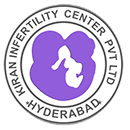
Surrogacy is an arrangement where a woman, known as a surrogate mother, carries and delivers a child for another person or couple, referred to as the intended parents. This process can be a complex and emotionally charged journey, necessitating careful selection and thorough testing of potential surrogate mothers to ensure the best outcomes for all parties involved. Here’s a detailed look at the recruitment and testing procedures in surrogacy.
Recruitment of Surrogate Mothers
1. Eligibility Criteria:
- Age: Surrogates typically need to be between 21 and 40 years old.
- Previous Pregnancy: Most agencies require that surrogates have had at least one uncomplicated pregnancy and delivery, demonstrating their ability to carry a pregnancy to term.
- Health: Surrogates must be in good physical and mental health, with no history of significant pregnancy complications.
- Lifestyle: Non-smokers, drug-free, and typically leading a healthy lifestyle.
- Emotional Stability: A stable home environment and strong support system are crucial.
Testing and Screening Process
1. Initial Application:
- Potential surrogates fill out an extensive application covering personal history, health background, lifestyle choices, and motivations for becoming a surrogate.
2. Medical Screening:
- Physical Exam: A thorough physical examination by a fertility specialist to ensure the surrogate is in good health.
- Obstetric History Review: An in-depth review of the surrogate’s obstetric history to check for any past complications.
- Laboratory Tests: Blood tests to screen for infectious diseases, hormonal levels, and general health markers.
- Ultrasound: An ultrasound to examine the health of the uterus.
3. Psychological Evaluation:
- A licensed mental health professional conducts a psychological assessment to ensure the surrogate understands the emotional aspects of surrogacy and is mentally prepared for the process.
- The evaluation also includes discussions about the surrogate’s support system and readiness to deal with potential emotional challenges.
4. Legal Considerations:
- Legal Consultation: Surrogates must receive independent legal advice to understand the surrogacy contract and their rights and responsibilities.
- Contractual Agreement: Both parties sign a detailed surrogacy agreement that outlines the terms and conditions, including financial compensation, medical care, and parental rights.
Matching Process
Once a surrogate has passed the recruitment and testing phases, the matching process begins. Agencies typically match surrogates with intended parents based on mutual preferences, values, and expectations. Open communication and clear agreements are essential for building a trusting relationship between the surrogate and the intended parents.
Conclusion
The recruitment and testing of surrogate mothers is a meticulous and multi-step process designed to ensure the well-being of the surrogate, the intended parents, and the future child. By adhering to stringent criteria and thorough screening procedures, surrogacy agencies aim to create a positive and successful surrogacy journey for all involved.
- Tags:
- Surrogate Mother
